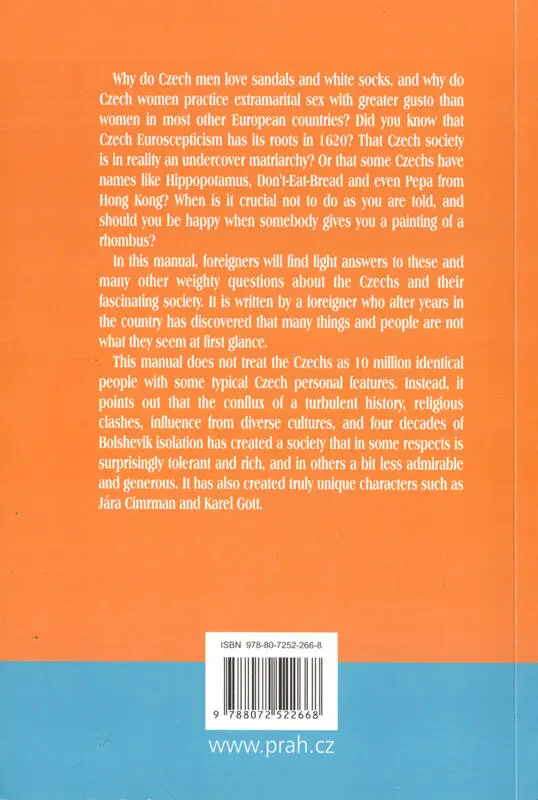
About the author:
TERJE B. ENGLUNDis a Norwegian journalist, writer and translator. Educated at the University of Oslo and the Institute of Slavonic Studies at Charles University, he has been based in Prague since 1993, covering Central and Eastern Europe for Scandinavian media. Englund is an affectionate cyclist, mountaineer and diver, and he also enjoys the company of his French bulldog, Gaston.
Obálka: Tomáš Řízek
Grafická úprava: Karel Kárász
Sazba a litografie: AG Design, spol s r. o., Praha
Redakce: Vladislav Dudák
Lektorace: Karsten Korbøl, Susan Legro a Katrine Lundgren
Tisk: Finidr s.r.o., Český Těšín
Adresa nakladatelství:
Práh s.r.o., Patočkova 85, 169 00 Praha 6
www.prah.cz
Text © Terje B. Englund, 2004, 2009
Photo © Jaroslav Fišer (18), Terje B. Englund (15), Ame Valen (2), 2004, 2009
Typography © Karel Kárász, 2004, 2009
Vydalo © nakladatelství Práh, 2009
ISBN 978-80-7252-266-8
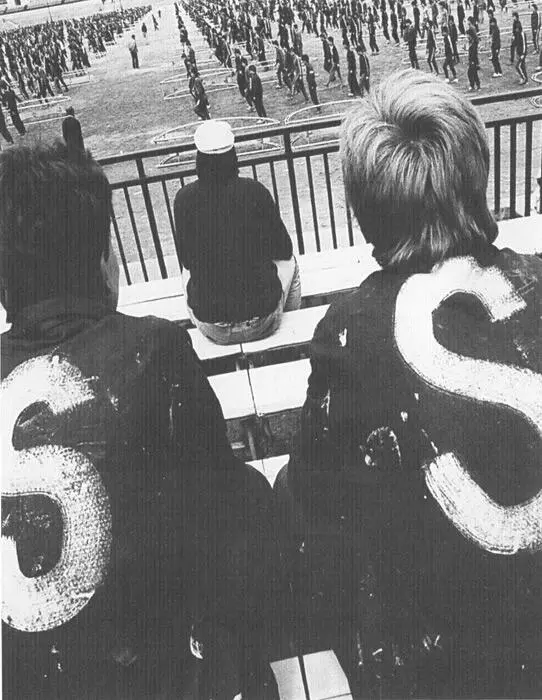
Photo © Jaroslav Fišer
I had been living in Prague for half a year when a colleague invited me to visit him and his family. Eager to make the impression that I was perfectly used to visiting Czech homes, I turned up with flowers for my friend’s wife and presents for each of his four children. So, when I saw the impressive collection of boots that were neatly lined up outside the doorstep, I immediately started to untie my muddy sneakers.
“Oh no, please don’t take your shoes off!” the entire family yelled in unison.
Not knowing that many Czechs on some specific occasions say one thing while they actually mean something totally different (see: Communication), I marched my boots across the wall-to-wall-carpet with a blissful grin. Notwithstanding the flowers and the presents I brought, the visit turned out to be a disaster, and my colleague got a clear order from his wife never to invite another ΨΔ↓א! foreignerto their home.
Some months later, I was sitting in a hospoda with a pimpled dentist from Sweden and an astonishingly beautiful and succulent brunette (I know, you might think it sounds chauvinistic to praise a woman’s looks so ostentatiously, but if you intend to stay for a while among Czechs without suffering too many nervous breakdowns, just get used to this sexism. And besides that — it’s all true!). Since she was studying literature, I decided to try to charm her with my “thorough” knowledge of the writer Milan Kundera.
“His novels certainly represent a highlight in modern European literature,” I babbled shamelessly. It was the most stupid thing I could have said. Not because I actually hadn’t read more than one of Kundera’s novels, but because I didn’t have the faintest idea that 99.5 percent of Czech intellectuals regard it as a matter of honour to despise the now-French-writing novelist. When I finally learned my lesson, the beauty was already married to the red-faced Swede.
Amazingly enough, there are foreigners who have committed even bigger blunders than I have. Such as the East-Asian businessman who had just taken up the position of managing director at a Czech company. The first day in the new job, he was offered some knedlíks — the dumplings that represent the zenith of Czech cuisine— at a welcome dinner arranged by his new colleagues. Convinced that it was a small refreshing towel, the poor fellow started rubbing his face with a dumpling. Needless to say, he had a hard time regaining his employees’ respect after that performance...
Human consideration prevents me from mentioning even more juicy examples of foreigners making complete fools of themselves simply because they don’t understand the Czechs and their culture or don’t know the historic background and the main political events that have shaped their prevailing world-view.
This manual is a modest attempt to meet such a demand, and also to warn non-Czechs about numerous pitfalls that threaten them. Some of you will probably object that it is too negativistic and critical, but believe me, this is peanuts compared to the flagellation most Czechs every day practice both on themselves, and to others. Their historical fate as a small nation in the middle of Europe, which for more than a millennium has been subjected to enormous political pressure from its surroundings, has rendered most Czechs rather cynical and often also disillusioned. Instead of asking how this or that catastrophe could ever happen, a Czech will ask instead why it hasn’t happened far more often.
My immediate motive is to help fellow foreigners, be they touristsor longer-term residents, to avoid some of the numerous blunders I have committed. In addition, I hope to share my affinity for a culture and a nation that spans the amusing and the ludicrous, the ingenious and the infantile, the modest and the megalomaniac, the open-minded and the completely xenophobic, with a reach that appears to be broader than in most other European countries.
Terje B. Englund,
Prague, August 2004
On a cold December day in 1996, the atmosphere in the Czech Parliament’s Chamber of Deputies was tense. Rumours were flying that Jan Kalvoda, Minister of Justice and Vice Premier, had committed a shocking and unforgivable sin. Now he was standing on the rostrum in front of 200 curious representatives.
What awful crime would this serious and respected politicianconfess to? Had he exposed himself indecently in a park late at night? Had Kalvoda, as had so many Czech politicians, been caught drivingdrunk? Or, heaven forbid, had the Minister of Justice accepted an envelope stuffed with banknotes (see: Corruption) from some lugubrious business people?
It turned out to be much worse. As an educated lawyer, Kalvoda was fully entitled to call himself Magistr — a Master of Law. But on several occasions, Kalvoda had been unfortunate enough to call himself JUDr. — a Doctor of Law. He had even misused the title when he signed official documents. For Kalvoda, there was only one thing to do: to commit hara-kiri publicly. In front of the flabbergasted parliamentarians, Kalvoda declared that he was immediately resigned from the government, and that his political career was finished forever.
For many foreigners, political suicide might seem a somewhat exaggerated punishment for just “upgrading” a Magistr to a Doktor . Not so for the Czechs. In this country, academic titles are indeed a serious matter. And, what’s more, they are almost a prerequisite for those who wish to make a career in politics or business, which, of course, indicates that Kalvoda is not the only title-abuser in this country.
The Czechs’ title craze has been explained by several theories. The Swedish writer and diplomat Ingmar Karlsson, for instance, believes it is a legacy from the Habsburg monarchy, when the Czechs, as a matter of national pride, did their utmost not to lag behind the similarly title-fixated Austrians. Another explanation is the importance that Czechoslovakia’s First Republicand its founder, president Tomáš G. Masaryk, attached to education as a means of strengthening the young state. And, finally, the communist regime’s foolish attempt to create a “classless society” resulted in an incredible inflation of titles, since people used them deliberately to signal that they, although moneyless and materially deprived, at least not were a part of the ruling proletariat.
Читать дальше
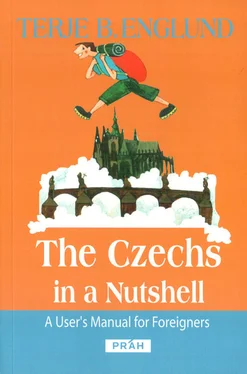



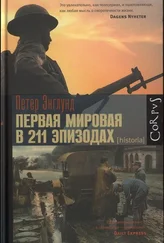

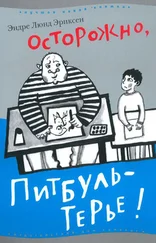
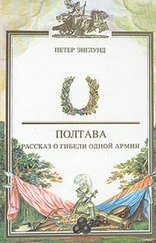


![Theresa Cheung - The Dream Dictionary from A to Z [Revised edition] - The Ultimate A–Z to Interpret the Secrets of Your Dreams](/books/692092/theresa-cheung-the-dream-dictionary-from-a-to-z-r-thumb.webp)



